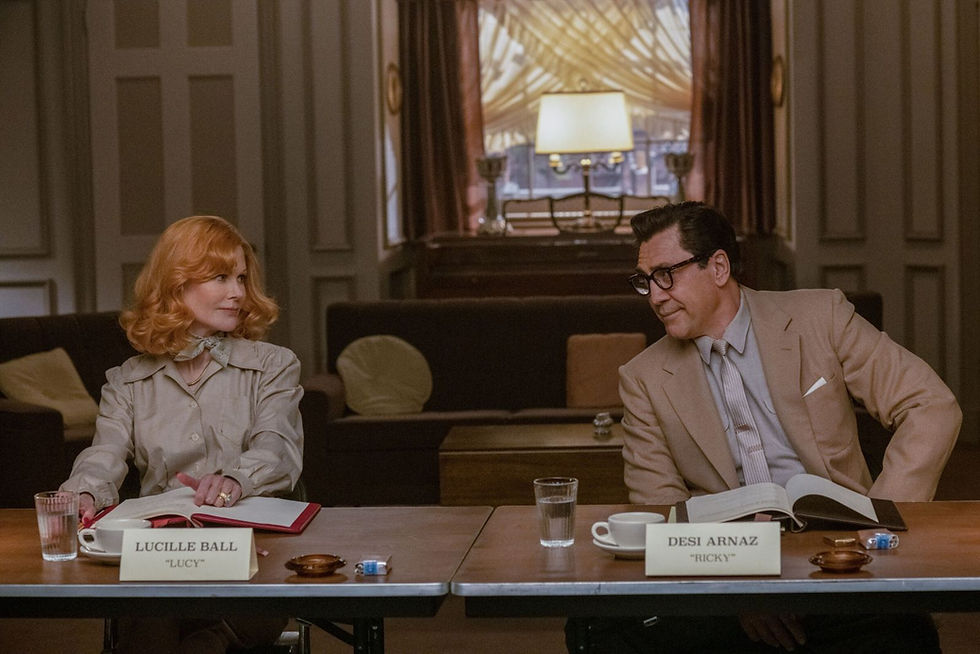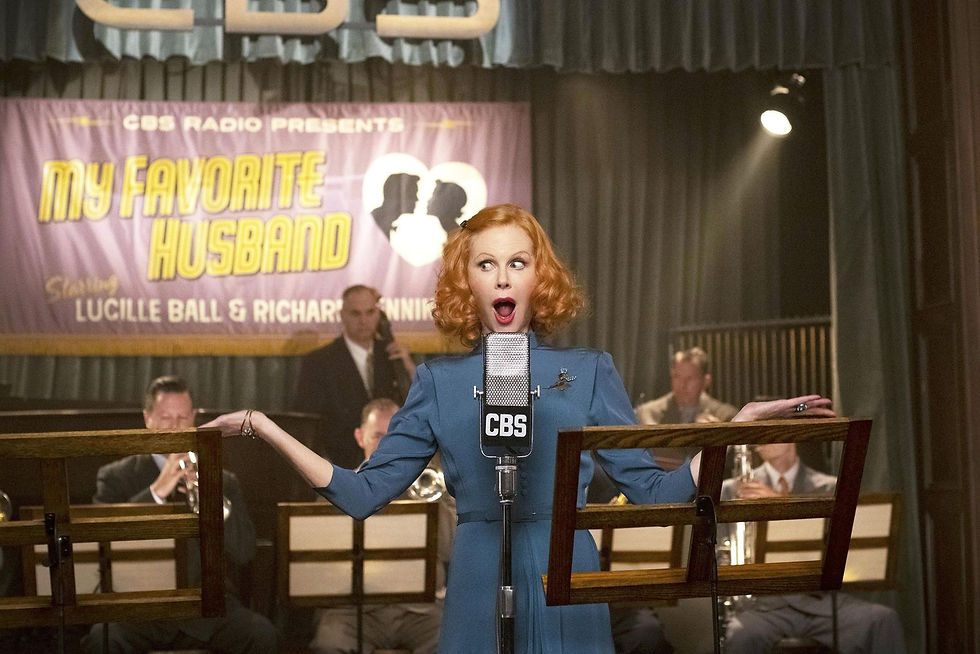Unhappy Together: Review of the Film "Being the Ricardos"
The most subtle, but directorially nondescript drama of the screenwriter genius Aaron Sorkin.
Desi Arnaz (Javier Bardem) and Lucille Ball (Nicole Kidman), star actors from the sitcom "I Love Lucy", have a whole bunch of problems: the wife is accused of aiding the communists (at that time a flagrant crime), the husband is caught by the paparazzi in the company of another stranger, and they are both preparing to become parents and somehow explain to the studio bosses that now a baby will appear on the show. Running a new script becomes for them a real battle for reputation - Lucille's entire career depends on how the episode turns out. Jokes cease to be jokes - now you have to fight with the authors for each vanliner like in a ring, and a bodily comedy turns into a kind of Hong Kong action movie with choreography verified to the smallest detail.

No one can show the inner kitchen of lawyers, journalists and, finally, screenwriters with actors as convincingly as Aaron Sorkin can do. “Being Ricardo”, first of all, of course, is a melodramatic story, even if it is a biopic - it’s not just that the real Ball and Arnaz were drawn into family scandals and have always flaunted on the front pages of tabloids. On the other hand, it is easy to notice the addition of one important circumstance to this love equation: the main characters are actors, a couple both in life and on the screen, which means that a kaleidoscope of stories about betrayal, quarrels and difficult life will mirror the studio stage. The on-screen everyday life of Lucille and Desi in the next episode of the sitcom is a reflection of the dream that the heroine Nicole Kidman lived. Her ideal is a licked family comedy, where the husband's infidelity is just an excuse for a whipping gag, and the child is an incredible plot twist that will lead to new scenario arcs.

Lucille, who confidently holds on to the stage and tries to control the process (she literally forces the actors to return to the set at night in order to properly stage the dinner episode), is lost in her real home. In a common bed, the husband sleeps only twice a week, the yellow newspapers write about his intrigues, and only there, surrounded by plywood walls and a film crew, does a woman revel in the illusion of happiness and power. The “Being Ricardo” conflict is perhaps the most humane in the entire Sorkin filmography - it is about people, not geniuses (with all due respect to the Ball-Arnaz duo, it is difficult to call it outstanding); a family that desperately wants to live "the way it should," but doesn't know how. And all this, of course, in the inhospitable realities of the 50s, hostile to women and maintaining one close stereotype after another.
Although "Being Ricardo" can hardly be called an attack on a particular era. It is rather a movie about the confusion of the world around it and its moral coordinates. Sorkin reflects heroes in mirrors, multiplies them with the help of photographs in newspapers, posters and television screens. What were the real Lucille and Desi? Go figure it out. The protagonists live in the wonderland of Lewis Carroll, where it is unclear what copies what - reality art or art reality. "Does Desi love Lucy?" - asks one of the tabloids. Of course he loves it: it’s written in their own script.

It is paradoxical how in such a movie about the illusions of family life Sorkin manages to restrain himself from his favorite pathos. Of course, his picture is about a strong woman: Lucille, who suffers deceptions from her husband and unsuccessfully tries to save the relationship with the help of the show, shows her monumental character. In general, the heroine Nicole Kidman here, without exaggeration, has one of the most impressive female images in the cinema of 2021: lost, but not exhausted, deceived, but not in her last breath - in the pavilions she keeps herself more confident than most men and invariably achieves her goal. For Sorkin, she is not a victim in the usual sense - rather, forever, a sad romantic heroine, doomed to be unhappy at any (and especially in this) time.
And what about Sorkin's "machine-gun" dialogues? They, luckily, still get there. The screenwriter is still as talkative and cynical as he was 10 years ago: in Being Ricardo, verbal duels are even more captivating than camera spans through the studio of the 50s. And yet it is a pity that the author, who with such reliability and attentiveness talks about the filming process (using the example of "Ricardo" in general, one can understand with what difficulty a physical comedy is made and jokes are invented in stuffy offices), so far, is completely deprived of his own voice as a director. Sorkin has always been attracted to great personalities, artists and businessmen, and as a screenwriter he is certainly congenial to them. However, when Aaron moves into the director's chair, he switches from his writing skills to imitation. “Being Ricardo” is a movie, of course, not without style, but it was filmed with such blatant restraint that the gap between the material and its implementation is as easy to notice as the props on the “I love Lucy” set. On the other hand, does it strongly interfere with the magic of cinema? Perhaps it even contributes.
This article was sponsored by Mira Zecevic
Comments